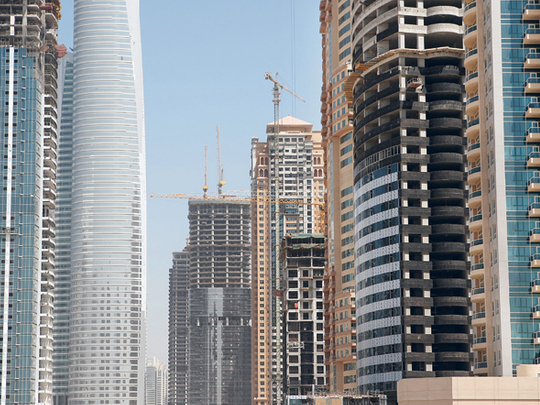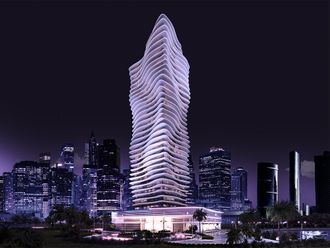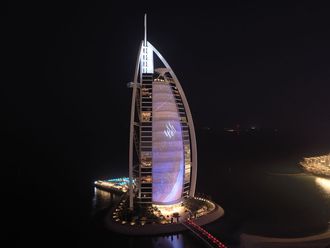
Dubai: The recent decision by the UAE Cabinet to lengthen property investors' visit visas from six months to three years has come as a welcome announcement by property analysts, investors and owners.
According to a recent report by Citigroup, this move will boost demand in the UAE's residential real estate sector, particularly in Dubai.
"The promise of a long-term residence visa was a major drive for second home purchases during the real estate boom prior to mid-2008," said Farouk Soussa in Citigroup's report.
Previously, foreign property owners with realty worth more than Dh1 million were able to apply for a visa which had to be renewed every six months for Dh2,000. This limitation had removed one of the key attractions of investing in the Dubai real estate market.
"This is a great move by the government as this will surely boost the property sector to a large extent in the UAE. This move will see further demand in the real estate sector in Dubai and we are indeed very happy about this decision," said Kamal Vachani, property investor and director of the Al Maya Group.
The announcement comes at a time when the property market and investor sentiment are picking up.
"The increase in the property residence visa duration to three years comes at a time when transaction volumes are increasing and real estate prices have stabilised in many areas in the UAE," Shahram Safai, partner at Afridi & Angell, told Gulf News.
Regional unrest may also encourage homebuyers to look at the UAE's realty market.
"The unrest in parts of the region may well encourage those residents to look for alternative safe and secure locations where they will be able to base their families," Elaine Jones, CEO of Asteco, told Gulf News.
However, according to Shrikanth S, industry analyst at Frost and Sullivan, the impact may be marginal as the cost savings due to the renewal is approximately one per cent of the property price.
According to Citigroup, the visa extension will also improve prospects for the resolution of the debt overhang in the medium term by reinforcing investor appetite.
"The property sector is a key contributor to the non-oil GDP of the country, and is one of the largest employment providers apart from supporting several associated industries. The sector also attracts foreign direct investment to the country, and the Cabinet decision will enhance the appeal of the UAE as a preferred destination for safe investments in property," said Mohammad Al Abbar, chairman of Emaar Properties in a statement.
The longer visas will also encourage people to set up home and stay in Dubai longer even after their employment.
"The Emirates is a very attractive place for people to choose to live in either on a full-time basis or for a second home. This revision will potentially enable and encourage those who have already purchased a property to make good use of it by spending more time here.
"Value will be added to a property that is well cared for and maintained, where it may otherwise fall vacant for long periods of time," said Jones.
As homeowners wait for the exact details to be confirmed, analysts say this boost in confidence and sales will depend on the finalised details.
"I believe that only when the technicalities of the visa requirements have been finalised, and it has been tried and tested, will we see an increase of investors. As mentioned earlier, it will increase investor confidence, but since the crisis, investors are much more wary of diving in, so it will take a little time, but eventually the real estate market will see the benefits," said Michael.
Property analysts believe the minimum property value of Dh1 million will be a slight impediment to the return of property investors.
"We see that the minimum property value of Dh1 million for properties in the UAE could be challenging for some buyers, because prices have dropped considerably over the last few years, due to the economic downturn coupled with the amount of supply in the market," said Jones.
The decision has also received encouraging response from other sectors.
"This move will see further demand in the real estate sector in Dubai and we are indeed very happy about this decision," Kamal Vachani, director of Al Maya Group, said.
Oversupply problems
The change is likely to bring a new surge of investors, but the upcoming supply is expected to present a problem.
According to a report by Jones Lang LaSalle, over 50,000 new residential units are expected to be completed in Dubai between now and the end of 2013, raising the current stock of homes by about 15 per cent.
In the next year alone, another 20,000 homes are expected to be built in Dubai and 16,000 in Abu Dhabi.
As a result of mass oversupply, Soussa predicts that the commercial property market is unlikely to see any positive effect.
"We see substantial weakness emanating from the supply overhang in the commercial property market, which is unlikely to be affected by the new visa rules," said Soussa.












